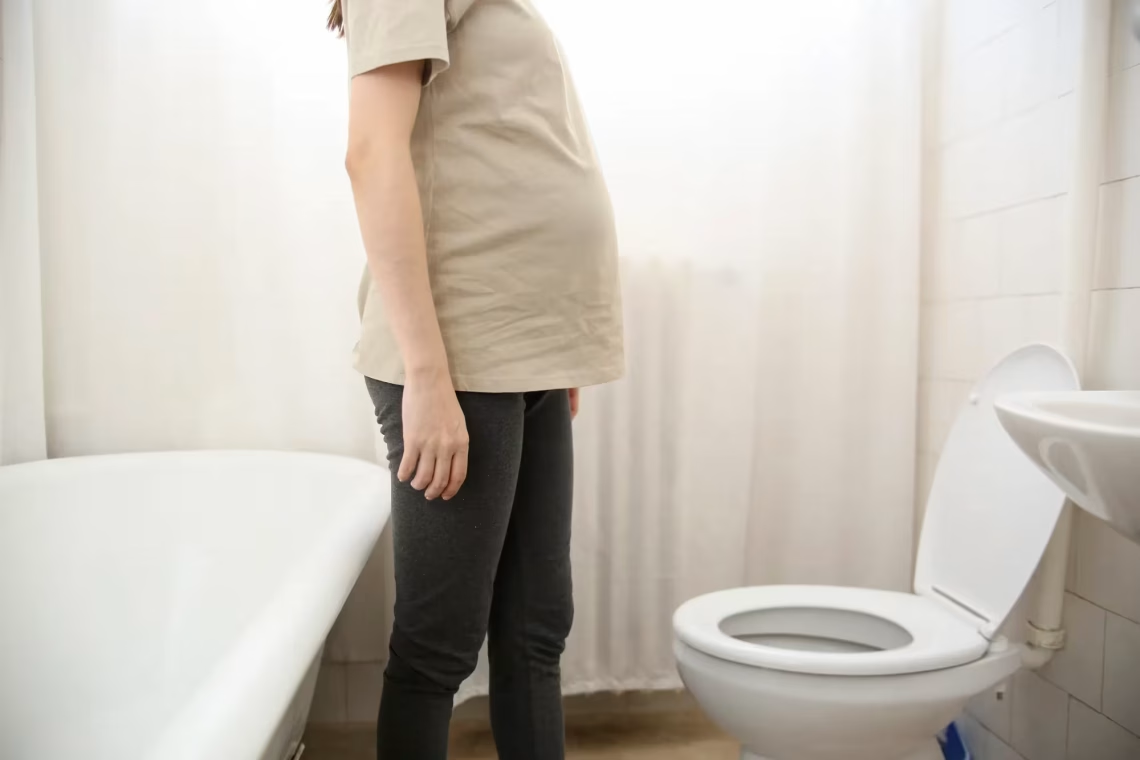Introduction
Frequent urination is often one of the earliest signs of pregnancy—and it can be both surprising and inconvenient. Many women notice themselves making extra trips to the bathroom even before a missed period, and this can continue through the first trimester and beyond. While it might feel unusual, increased urination is a normal and common part of pregnancy.
But why does this happen? Is it just the baby pressing on your bladder, or are there other reasons? Understanding what’s going on in your body can help you manage the changes with more confidence. This article explores the hormonal causes of frequent urination, the role of bladder pressure, and how to tell normal symptoms apart from a urinary tract infection (UTI).
Hormonal Causes
In the early stages of pregnancy, your body undergoes a dramatic hormonal shift to support the growing embryo. One of the main hormones responsible for frequent urination is human chorionic gonadotropin (hCG). This hormone increases blood flow to the pelvic region and kidneys, prompting them to work more efficiently. As a result, your kidneys produce more urine—even if your fluid intake hasn’t changed.
At the same time, progesterone—another key pregnancy hormone—relaxes smooth muscles throughout the body, including those in the urinary tract. This can make you feel the urge to urinate more often, even when your bladder isn’t full.
Additionally, your blood volume increases significantly during pregnancy to supply oxygen and nutrients to your baby. The kidneys filter this increased blood volume, leading to more urine production. This physiological change starts in the first trimester and continues throughout pregnancy.
Bladder Pressure
While hormonal changes are the main reason for increased urination early on, physical pressure on the bladder also contributes to the problem.
As your uterus begins to expand (even in early pregnancy), it can start pressing against the bladder, especially if you have a smaller pelvic frame. This reduces your bladder’s capacity to hold urine, making you feel the urge to urinate more frequently.
Later in pregnancy, this pressure intensifies as the baby grows. However, some women experience noticeable bladder pressure as early as 6–8 weeks into pregnancy.
Additional triggers that may worsen bladder pressure:
- Standing for long periods
- Drinking large amounts of fluid quickly
- Coughing, sneezing, or laughing (can cause slight leakage)
While this can be inconvenient, it’s generally harmless and subsides temporarily during the second trimester when the uterus rises out of the pelvis.
What’s Normal vs UTI
Frequent urination in early pregnancy is usually normal, but it’s important to recognize signs that could point to a urinary tract infection (UTI)—a common condition in pregnancy due to hormonal changes and urinary tract dilation.
Normal Urination in Early Pregnancy:
- Frequent but not painful
- Clear or light yellow urine
- No fever, chills, or back pain
- No strong odor or unusual color
Signs of a UTI:
- Pain or burning while urinating
- Urgent need to urinate but only a small amount comes out
- Cloudy, dark, or foul-smelling urine
- Lower abdominal pain or cramping
- Fever or chills
- Blood in the urine
UTIs can pose risks in pregnancy if left untreated, including kidney infections and even preterm labor. If you suspect an infection, it’s important to contact your healthcare provider for testing and treatment—antibiotics that are safe for pregnancy are typically prescribed.
Conclusion
Frequent urination is a natural part of early pregnancy, driven by hormonal changes, increased blood flow, and physical pressure on the bladder. While it may feel disruptive—especially at night—it’s generally harmless and even a sign that your body is working hard to support a healthy pregnancy.
That said, stay alert for signs of a UTI, such as burning, pain, or unusual urine color. These require medical attention to keep both you and your baby safe. Staying hydrated, using the bathroom when needed (never hold it), and practicing good hygiene can help you navigate this phase more comfortably.
As your pregnancy progresses, your bladder will continue to feel the pressure—but with the right care and awareness, you can manage it confidently and safely.
FAQs:
Why do I pee all the time?
Hormones, increased blood flow, and early bladder pressure boost urine production.
When does it start?
As early as 6 weeks into pregnancy, sometimes even before a missed period.
Is it a sign of UTI?
Not usually, unless there’s pain, burning, or cloudy urine.
How can I manage it?
Stay hydrated, avoid caffeine, empty your bladder fully, and go when you feel the urge.
Does it get better later?
It may ease in the second trimester but often returns in the third as the baby grows.






